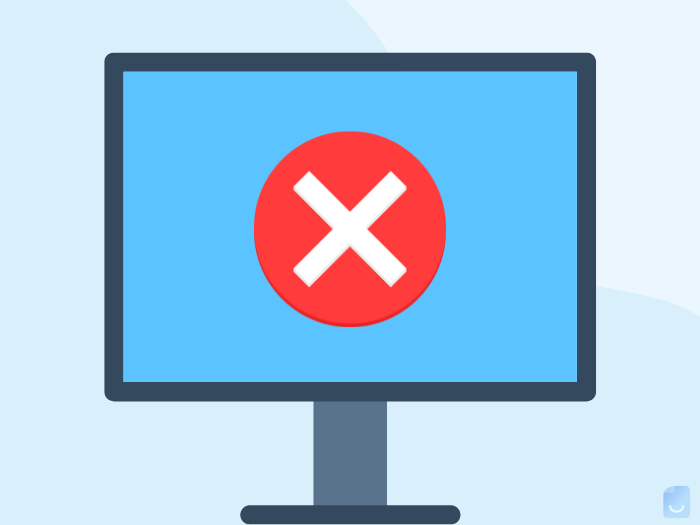Best Small Business Insurance

When you first start out freelancing, it’s easy to think of your work as a side hustle or a gig, and to neglect the more intimidating and tedious aspects of running a business—like forming an LLC, opening a business bank account, and getting business insurance. But whether you’re a solo-preneur who still has a day job or the full-time leader of a small team working at your own business, it’s smart to take your work seriously by putting protections like insurance into place.
Make a Free Invoice NowGetting a business insurance policy is one of the most protective actions you can take to safeguard your future success. Yet if you’re new to the small biz life, you might not even know what small business insurance is. Read on to learn and explore the best options for your unique situation.
What Is Small Business Insurance?
Small business insurance protects you, the business owner, from financial liability when things go wrong. What can go wrong? Lawsuits, injuries, property damage, workers’ comp claims, and more.
When we say “small business insurance,” we’re using an umbrella term to describe several categories of insurance policies that provide coverage to small business owners. Each business and industry will have unique needs, so we’ll begin with the most common types of insurance policies, working from the general and comprehensive toward more niche options.
Business Owners Policy
These comprehensive policies are bundles of several different types of insurance, all for one fee. This generally provides a significant savings over purchasing policies a la carte, and reduces paperwork. To get a quote, you’ll need to work directly with an insurance broker, who will talk to you about your business and your insurance needs.
General Liability Insurance
This is the policy that protects you if someone slips on their way into your office and breaks their neck. It covers property damage and personal injuries that are related to your business and workspace, and typically covers medical bills and legal fees for any injuries as well as wear and damage to space your business occupies for work purposes (like a rental office).
Workers’ Compensation Insurance
It’s worth noting that if you have employees—and under some circumstances, you count as an employee of your own business if you’re self-employed—this one isn’t optional; it’s required by law. (Texas is the only state that does not require worker’s compensation insurance.) Workers’ comp covers you if an employee gets hurt or sick at work, taking care of their medical expenses and making sure you don’t come out of pocket to get them the care they need.
Cyber Liability Insurance

You may be surprised to learn that 43% of cyber hacking events target small businesses. If the work you do is in the digital space, it’s worth considering a cyber liability policy, which protects you from liability in the event your (and, more pertinently, your clients’) data safety is breached by a hacker.
Commercial Auto Insurance
If you have a fleet of commercial vehicles or company cars (or even one), you need a commercial auto policy, which will also protect you when you or your employees are using your personal car for business purposes. Commercial auto insurance is commonly bundled with other types of liability insurance.
Professional Liability Insurance
America is a highly litigious country, and most professionals are vulnerable to legal action despite running careful and ethical businesses. Professional liability insurance is sometimes called “errors and omissions” insurance, or in the case of licensed professionals like doctors and lawyers, it is called malpractice insurance.
Do I Need Small Business Insurance?
In a word, yes. The question is less “do I need insurance?” and more “how much insurance do I need.” In some cases, local laws or regulations will determine how much insurance your business needs; in others, potential clients will have minimal insurance requirements that you’ll need to meet to compete for their business.
Beyond that, the answer ultimately depends on your sense of risk and reward. If you’re cautious by nature and run your business with that value, it stands to reason that you should get as much appropriate insurance coverage as you can reasonably afford. If you’re more of a fly by the seat of your pants type in life and in business, maybe you want to get the bare minimum
But in either case, you need to establish a clear sense of what that bare minimum and hypothetical maximum coverage is, so let’s start with the basics, choose-your-own-adventure style:
- Do you have a small business? If the answer is yes, you need, at minimum, general liability insurance.
- Are you a professional? If the answer is yes, add professional liability insurance
- Do you have employees? If the answer is yes, add workers’ comp to your minimum requirements.
- Do you have a company car, commercial vehicle, or fleet? If the answer is yes, you need to add commercial auto insurance.
- Do you deal with digital client data? If the answer is yes, add cyber liability coverage.
- Does your business maintain real estate and/or physical assets (like equipment, tools, furniture, or inventory)? If the answer is yes, consider commercial property insurance, which will help you replace any property losses or damages that occur during the course of business.
- Do you like extra peace of mind? Or, do you operate in a high-risk field? If the answer to either is yes, consider a commercial umbrella policy, which is like an uplevel to an existing policy and increases your coverage limits in the event of a huge liability or loss.
- Do you thinking having guaranteed income in the event of disaster worth paying for? If so, consider business income insurance, which covers your lost income in the event of loss or damage from storms, fire, and theft.
- Do you worry about being sued by an employee? If so, you can pay for protection via employment practices liability insurance, which covers you if you are sued for wrongful termination, discrimination, or sexual harassment by an employee.
- Are you overwhelmed by options? If so, you may be best served by a comprehensive business owners policy, which is a custom packaging of multiple policies into one bundle
Our Picks
For every type of insurance, there are hundreds of options, from huge companies with name recognition to smaller businesses. It’s hard to weed through the choices, so we picked some top performers in critical categories for you to consider.
Best Business Owners’: Liberty Mutual
Everything is speedy and simple with Liberty Mutual, from the application to claims, making it our top pick for “just make it simple” types who want good coverage, minus the headache. They offer 24-hour claims assistance, and you can file a claim online (even from your phone).
Your individual business owners policy will be custom tailored to your specific needs, and Liberty can include everything from the basics like commercial auto and workers’ comp to industry-specific options, inland marine coverage, and equipment breakdown coverage.
Best Workers Comp: The Hartford
The Hartford is the second largest workers’ comp provider in the country and has a network of over a million healthcare providers who will care for injured workers. They are also friendly to small business.
One big issue with workers’ compensation insurance is over- and underpayment of premiums, which happens because premiums are typically set based on projections). This can be a problem for small business owners—in the first case, the problem is that you’re paying more than you can afford monthly, and in the second, it’s that you’ll end up with an unexpected year-end discrepancy bill. The Hartford solves this problem by offering pay-as-you-go plans that base your premium costs on your actual payroll, as opposed to projections.
Best General Liability: Nationwide
As a nearly 100-year-old company that specializes in business insurance, Nationwide is trusted and experienced. They offer liability insurance that covers industry-specific situations in 14 industries and received an A++ rating from AM Best, the world’s oldest credit rating agency that rates insurance companies.
Best Professional Liability: Pogo
Designed specifically for freelancers and sole proprietors, Pogo knows all the ins and outs of being a solopreneur, and won’t ask you to pay for redundant coverage that doesn’t relate to your business. Pogo partners with a variety of independent insurance carriers and offers you the best available quote by functioning as a marketplace.
When you apply for a quote, Pogo will send you a brief that outlines their top suggestions based on the size of your business, your industry, your income, and who works for you. Then, you make the choice that feels best to you.
Best Commercial Auto: Progressive Commercial
Progressive knows auto—it’s what they do, and as the largest commercial auto insurer in the U.S., they reliably do it well. They also offer other types of policies (general liability, business owners, workers’ comp, etc.) and extend a generous discount to clients who bundle auto with those policies. Progressive also offers a 15% discount for annual premium payments.
Make Sure You’re Adequately Covered
No matter what level of coverage you opt for, it’s important to understand the policies you’re signing, and to trust your insurance broker. Make sure they take the time to explain everything to you and that you understand everything you’re paying for. Being a small business owner means having to accumulate a lot of skills that are ancillary to what you actually do for work—and navigating the insurance marketplace is a skill set that will serve you well.


